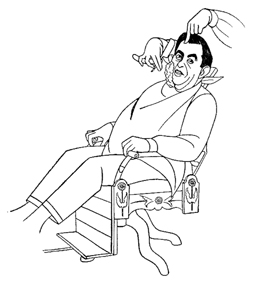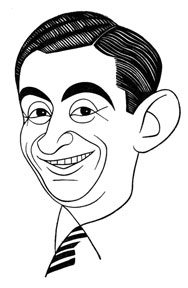“NEVER GIVE A SUCKER AN EVEN BREAK”

“NEVER GIVE A SUCKER AN EVEN BREAK”
We’d not intended to drop the ball on you this week, but we were fighting a losing battle with a nasty stomach bug earlier in the week and since then, we’ve been recuperating and catching up on tasks that faced us at work and at home.
Next week, we’ll be back up to speed, with the next chapter from Sidney Skolsky’s Times Square Tintypes going live on Monday and other surprises await you later in the week.
For now, just so you don’t feel forgotten, we encourage you to enjoy this brief snippet of a 1928 two-strip Technicolor short that features Hollywood starlets of the day, among them Laura La Plante and Raquel Torres, modeling the latest fashions of the day, accompanied by the tender warblings of Cladrite Sweetheart Annette Hanshaw.
![]()
A LEADER AMONG MEN
“PURE AS THE DRIVEN SNOW”
 Was once a bricklayer and the vice president of a chemical company. From the experience gained at the latter he is proficient in making gin.
Was once a bricklayer and the vice president of a chemical company. From the experience gained at the latter he is proficient in making gin.THE BIRTH OF THE BLUES
 Came to this country at the age of four, the youngest of eight children. In Russia his father was a cantor. Here a kosher butcher.
Came to this country at the age of four, the youngest of eight children. In Russia his father was a cantor. Here a kosher butcher.Let Me Be a Troubadour,And I Will For Nothing MoreThan One Short Hour Or SoTo Sing My Song And Go.